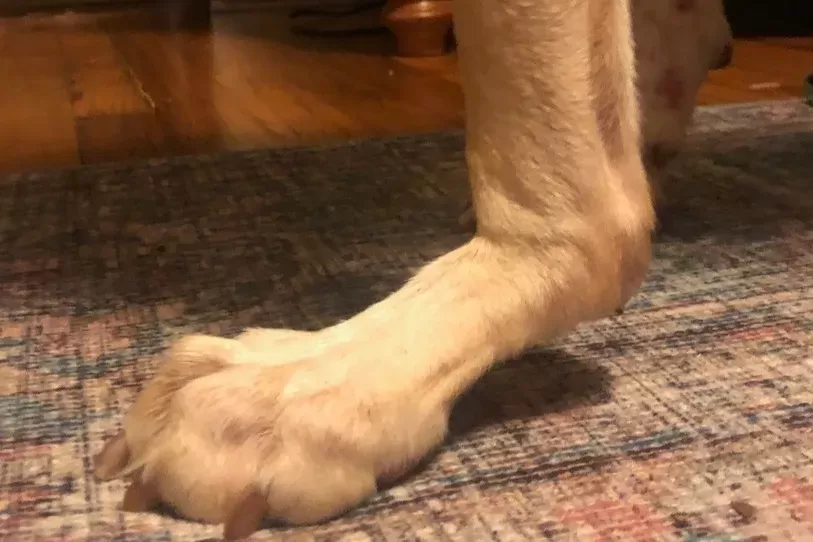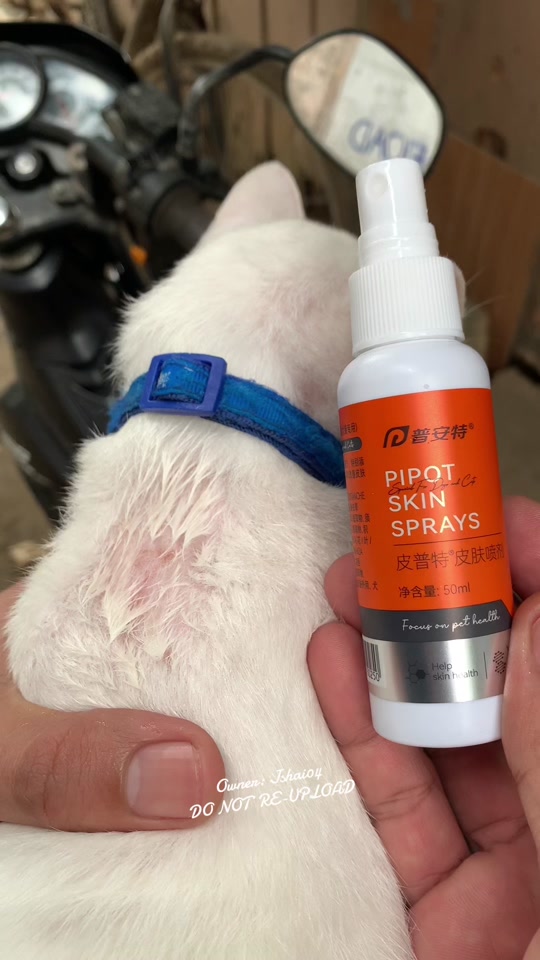Chronic Bronchitis in Dogs: Causes, Symptoms, and Treatment
Just like humans, dogs can also suffer from respiratory issues, and one of the common conditions they may face is chronic bronchitis. Chronic bronchitis in dogs is a persistent and often progressive inflammation of the bronchial tubes that can lead to significant discomfort and health problems. In this article, we will delve into the causes, symptoms, and treatment options for chronic bronchitis in dogs.

What is Chronic Bronchitis?
Chronic bronchitis in dogs, also known as chronic obstructive pulmonary disease (COPD) or chronic bronchopulmonary disease (CBPD), is a respiratory condition characterized by long-term inflammation of the airways and increased mucus production in a dog's lungs. It is a common respiratory ailment in dogs, particularly in older ones, and can lead to coughing, difficulty breathing, and reduced exercise tolerance.
Symptoms of Chronic Bronchitis in Dogs
Recognizing the signs and symptoms of chronic bronchitis in your dog is essential for early diagnosis and effective management. Common symptoms include:
- Persistent Coughing: A dry, hacking cough that persists for weeks or months is often the most prominent sign of chronic bronchitis.
- Labored Breathing: Dogs with chronic bronchitis may exhibit rapid or labored breathing, especially during physical activity or excitement.
- Coughing up Phlegm: In some cases, dogs may cough up mucus or phlegm, which can be clear or have a yellowish tint.
- Exercise Intolerance: Dogs may become less active and reluctant to engage in physical activities due to discomfort and breathing difficulties.
- Wheezing or Noisy Breathing: You may notice wheezing sounds or other unusual noises while your dog is breathing.
- Weight Loss: Chronic bronchitis can lead to a decreased appetite and weight loss in some cases.
What Causes Chronic Bronchitis in Dogs?
Chronic bronchitis primarily affects the lower respiratory system, specifically the bronchial tubes, which are part of the larger airway system in the lungs.
The exact cause of chronic bronchitis in dogs is often unknown, but it is thought to be related to long-term irritation or damage to the airways, which can result from exposure to environmental pollutants, such as cigarette smoke or dust, or from repeated respiratory infections.
Does Obesity Make Chronic Bronchitis Worse?
Yes, obesity can exacerbate the symptoms and complications of chronic bronchitis.
Excess body fat can restrict the movement of the diaphragm and chest wall, reducing the ability of the lungs to expand fully. This restriction can lead to decreased lung function and make it more difficult to breathe, which is already a problem in individuals with chronic bronchitis.
Obesity is often associated with other health conditions such as diabetes and heart disease. These comorbidities can further strain the respiratory system and complicate the management of chronic bronchitis.

How Is Canine Chronic Bronchitis Diagnosed?
The veterinarian will start by conducting a thorough physical examination of your dog. They will listen to your dog's chest for abnormal sounds, assess their overall health, and inquire about any symptoms you've observed, such as coughing, difficulty breathing, or changes in exercise tolerance.
There are several other conditions that can cause respiratory symptoms in dogs, such as kennel cough, respiratory infections, lungworm, heartworm, and foreign bodies in the airways. The veterinarian will consider these possibilities and may ask questions about your dog's recent activities or travel history.
The inspections involved include:
- Chest X-rays: Radiographs of the chest can help visualize the condition of the lungs and airways. Chronic bronchitis may show signs of airway inflammation, increased lung markings, or other abnormalities.
- Bronchoscopy: In some cases, a bronchoscopy may be performed. This involves passing a thin, flexible tube with a camera into the airways to directly visualize the bronchial tubes and take samples for analysis.
- Airway Sampling: Samples of mucus or cells from the airways may be collected during a bronchoscopy or through a technique called bronchoalveolar lavage (BAL). These samples can be examined for signs of inflammation, infection, or other underlying issues.
- Blood Tests: Blood work may be conducted to assess your dog's overall health and rule out other systemic conditions.
How to Treat Chronic Bronchitis in Dogs?
If you suspect your dog has chronic bronchitis or if your dog has been diagnosed with the condition, it's crucial to work closely with a veterinarian. They will conduct a thorough evaluation and develop a personalized treatment plan for your dog.
Medications
Medications are often prescribed to manage the symptoms and underlying inflammation associated with chronic bronchitis. Common medications include:
- Bronchodilators: These medications help relax and open the airways, making it easier for your dog to breathe.
- Corticosteroids: These anti-inflammatory drugs can reduce airway inflammation and mucus production.
Cough Suppressants: Cough suppressants may be prescribed to help control persistent coughing, which can be uncomfortable for your dog. - Antibiotics: In some cases, antibiotics may be prescribed if there is evidence of a bacterial infection in the airways. Chronic bronchitis is often associated with secondary bacterial infections.
- Cough Suppressants: Cough tablets for dogs can provide relief from the persistent cough, allowing your dog to rest and recover.
Lifestyle Adjustments
- Environmental Management: Minimize your dog's exposure to irritants like cigarette smoke, dust, and allergens. Maintain a clean living environment.
- Weight Management: If your dog is overweight, work with your veterinarian to develop a weight management plan, as excess weight can worsen respiratory symptoms.
- Exercise: Encourage gentle, regular exercise to help keep your dog's lungs healthy. Consult with your veterinarian to determine an appropriate exercise routine.
- Nutrition: Specialized diets or supplements rich in omega-3 fatty acids may be recommended to reduce inflammation.
Can Chronic Bronchitis Be Cured?
Chronic bronchitis in dogs, like in humans, is typically not considered curable. Instead, it is often managed with treatment and lifestyle adjustments to control symptoms, reduce inflammation, and improve the affected dog's quality of life. Chronic bronchitis is characterized by persistent inflammation of the airways and increased mucus production, and while treatment can help alleviate these symptoms, it may not completely eliminate the underlying condition.
How Long Does Chronic Bronchitis Last?
Chronic bronchitis is a long-term, ongoing respiratory condition in both humans and dogs. Unlike acute bronchitis, which is typically caused by viral or bacterial infections and resolves within a few weeks, chronic bronchitis persists for an extended period and is often not curable. The term "chronic" implies that the condition persists for months or even years.
The duration of chronic bronchitis can vary from individual to individual. Some dogs may experience milder and intermittent symptoms, while others may have more severe and continuous symptoms. The goal of treatment for chronic bronchitis in dogs is not necessarily to cure the condition but to manage and alleviate symptoms, improve the dog's quality of life, and prevent complications.
Difference Between Emphysema and Chronic Bronchitis
Here's a table outlining the key differences between emphysema and chronic bronchitis in dogs:
| Aspect | Emphysema | Chronic Bronchitis |
|---|---|---|
| Definition | Emphysema is a condition characterized by the enlargement of the air sacs (alveoli) in the lungs, leading to decreased lung elasticity and airflow limitations. | Chronic bronchitis is a long-term inflammation of the airways and increased mucus production in the bronchial tubes. |
| Primary Affected Area | Alveoli (air sacs) in the lungs | Bronchial tubes and bronchioles |
| Key Pathological Changes | Enlargement of alveoli, loss of lung elasticity, and destruction of alveolar walls | Inflammation, mucus production, and narrowing of bronchial tubes |
| Common Symptoms | - Difficulty breathing - Coughing - Exercise intolerance | - Persistent cough - Labored breathing - Wheezing - Exercise intolerance |
| Common Causes | - Smoking (in humans) - Alpha-1 antitrypsin deficiency (in humans) - Inhalation of irritants (in both humans and dogs) | - Exposure to irritants (e.g., smoke, dust) - Repeated respiratory infections - Environmental factors |
| Treatment Approach | - Oxygen therapy - Management of symptoms - Smoking cessation (in humans) | - Medications (bronchodilators, corticosteroids) - Antibiotics if bacterial infection present - Environmental management - Weight management |
| Prognosis | - Progressive disease with no cure - Focus on symptom management and improving quality of life | - Manageable with treatment - Many dogs can lead a good quality of life with appropriate care |
| Radiographic Findings | Chest X-rays may show hyperinflated lungs with decreased lung markings | Chest X-rays may reveal thickening of bronchial walls and increased lung markings due to inflammation and mucus production |
It's important to note that while emphysema and chronic bronchitis have distinct characteristics, they can sometimes coexist in dogs, and both conditions can contribute to respiratory symptoms. Proper diagnosis and treatment by a veterinarian are essential to address these respiratory issues effectively.
Acute Bronchitis vs Chronic Bronchitis
Here's a table outlining the key differences between acute bronchitis and chronic bronchitis:
| Characteristic | Acute Bronchitis | Chronic Bronchitis |
|---|---|---|
| Nature of Condition | Short-term inflammation of the bronchial tubes | Long-term inflammation of the bronchial tubes |
| Duration of Symptoms | Usually lasts for a few weeks to a few months | Persists for at least three months of the year for two consecutive years |
| Onset | Often follows a viral respiratory infection | Develops over time and is not typically preceded by an infection |
| Cough | Typically starts as a dry, irritating cough that may later produce mucus | Persistent cough with mucus production is a hallmark symptom |
| Fever | Common, especially if the cause is viral | Uncommon unless there is a concurrent infection |
| Breathing Difficulty | Mild to moderate, usually resolves as the condition improves | Often associated with more significant breathing difficulties, especially during exacerbations |
| Chest Discomfort | Mild chest discomfort or soreness is possible | May experience chest tightness and discomfort |
| Causes | Viral or bacterial infections are common triggers | Often related to long-term exposure to irritants (e.g., smoking, pollution) |
| Treatment | Often self-limiting and may not require specific treatment | Requires ongoing management and medication to control symptoms and inflammation |
| Prognosis | Generally resolves without long-term issues | A chronic condition that requires ongoing care and can worsen over time if not managed |
Conclusion
Chronic bronchitis in dogs can be a challenging condition to manage, but with prompt diagnosis and appropriate treatment, your furry companion can lead a comfortable life. If you suspect your dog is suffering from chronic bronchitis, consult your veterinarian for a comprehensive evaluation and treatment plan. By addressing the underlying causes and managing the symptoms, you can help your dog breathe easier and enjoy a better quality of life.
You May Also Like
View all
Puainta® Eye Drops for Dog Allergies and Cats Conjunctivitis

Puainta® Dog/ Cats Ear Cleaner Solution

Puainta® Ointment for Ear Mites & Otitis

Puainta®Fenbendazole Tablets Dewormer
Join The Puainta
Become one of pet parents and get professional tips, immediate product info, updated promotions and discounts, and more surprises from us!





















This site is protected by reCAPTCHA and the Google Privacy Policy and Terms of Service apply.